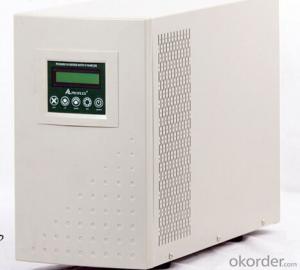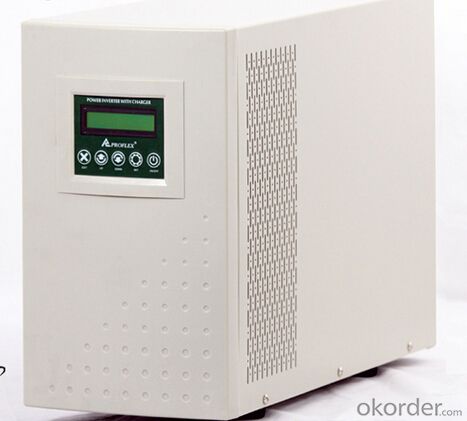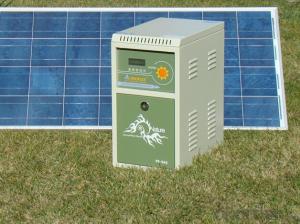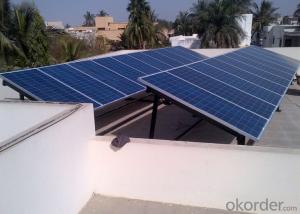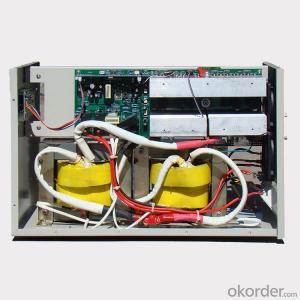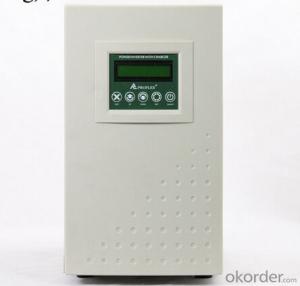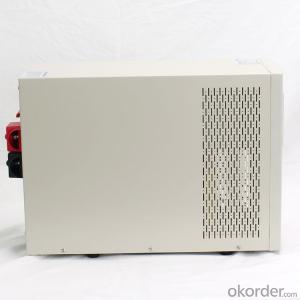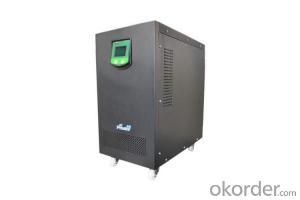Solar Energy Systems Phoenix Az - Off Grid Solar Power System PR-SAS300B with Battery Tank 300W
- Loading Port:
- Tianjin
- Payment Terms:
- TT OR LC
- Min Order Qty:
- 10 pc
- Supply Capability:
- 10000 pc/month
OKorder Service Pledge
OKorder Financial Service
You Might Also Like
Specification
Specifications
1.Supply 2 work modes: to save electricity bill or to supply long time power backup.
2. Supply battery tank,high integrated.
Warranty
provides a 1~3 year limited warranty (“Warranty”) against defects in materials and workmanship for its Uninterruptible power supply, Power inverter/chargers, Solar charge controllers, Battery Products (“Product”).
The term of this Warranty begins on the Product(s) initial purchase date, or the date of receipt of the Product(s) by the end user, whichever is later. This must be indicated on the invoice, bill of sale, and/or warranty registration card submitted to us. This Warranty applies to the original MUST-Solar Product purchaser, and is transferable only if the Product remains installed in the original use location.
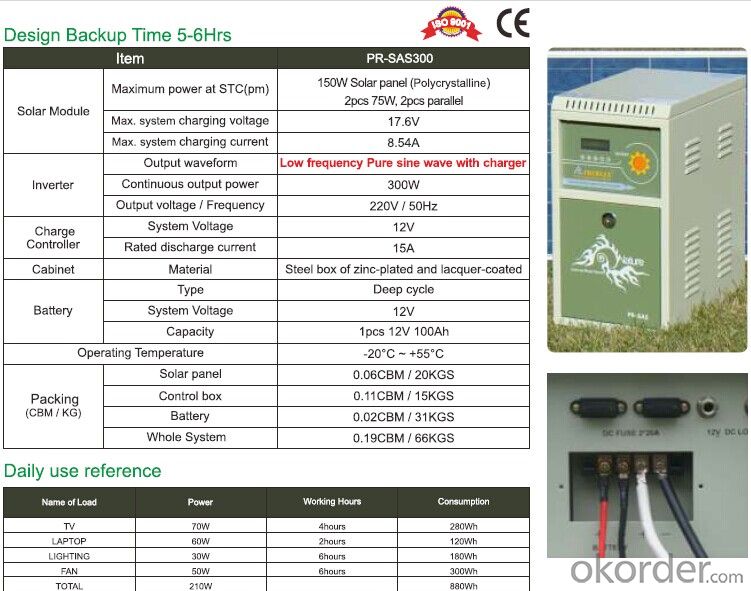

FAQ
1. How fast will my system respond to a power outage?
Our solar inverters typically transfer to battery power in less than 16 milliseconds (less than 1/50th of a second).
2. What kind of batteries do the systems include?
Our solar backup electric systems use special high-quality electric storage batteries.
3. How do I install my system?
A solar backup inverter is connected to a home electric system , we will supply detailed installation manual and videos for our customers .
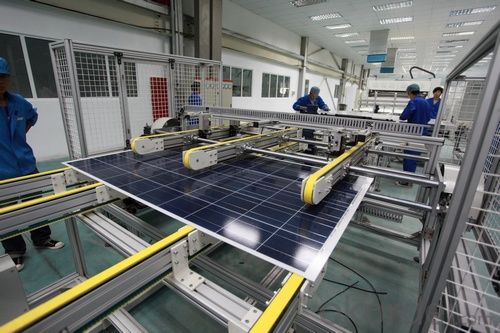
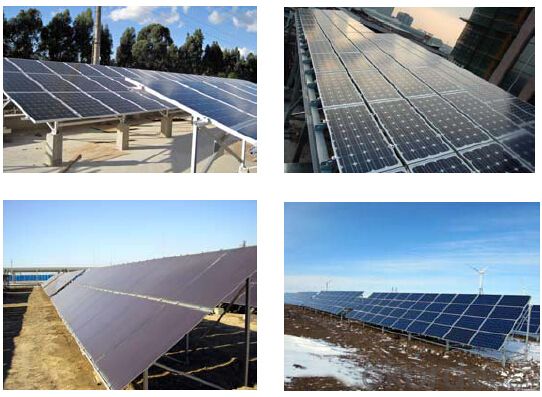
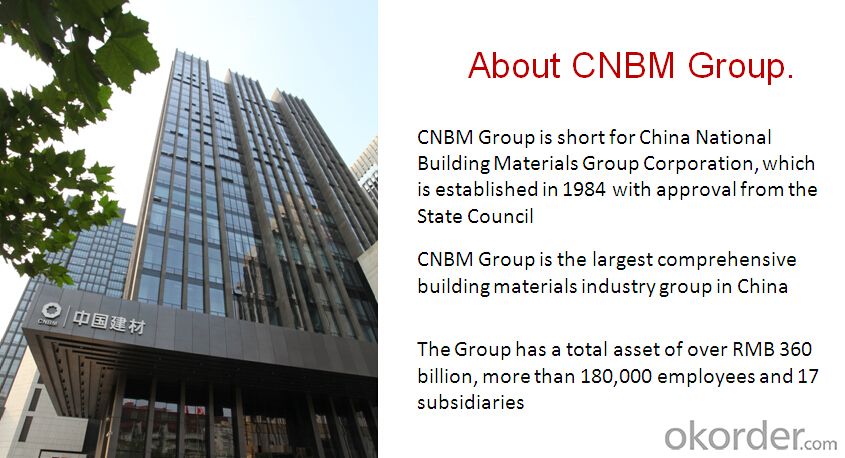

- Q: Can solar energy systems be installed on schools or educational institutions?
- Yes, solar energy systems can be installed on schools or educational institutions. In fact, many schools and educational institutions have already adopted solar energy systems as a way to reduce their carbon footprint, save on energy costs, and provide real-life examples of renewable energy to students. These systems can be installed on rooftops, parking lots, or open spaces, depending on the available area and energy requirements of the institution.
- Q: Can solar energy systems be used to power boats or yachts?
- Yes, solar energy systems can be used to power boats or yachts. Solar panels can be installed on the roof or deck of the boat or yacht to generate electricity from the sun. This energy can then be used to power the boat's electrical systems, including lights, navigation equipment, and even propulsion systems. Solar power is a sustainable and renewable energy source, making it an environmentally friendly option for powering boats and yachts.
- Q: Can solar energy systems be integrated into building design?
- Yes, solar energy systems can be integrated into building design. In fact, integrating solar energy systems into building design is becoming increasingly common and is considered a sustainable and cost-effective approach to generating electricity. There are various ways to incorporate solar energy systems into building design, including rooftop solar panels, solar facades, and solar windows. Rooftop solar panels are the most commonly used method of integrating solar energy systems into building design. They can be installed on the roofs of buildings, either as standalone structures or integrated into the roof itself. These panels capture sunlight and convert it into electricity, which can be used to power the building or be fed back into the grid. Solar facades are another way to integrate solar energy systems into building design. These systems involve installing solar panels on the outer walls of buildings. They not only generate electricity but also act as a protective layer, reducing heat gain and improving the building's energy efficiency. Solar windows are a relatively new development in building-integrated solar energy systems. These windows are designed with built-in transparent solar cells that can capture sunlight and generate electricity while still allowing natural light to enter the building. Solar windows have the potential to revolutionize building design by seamlessly integrating renewable energy generation into the building envelope. Integrating solar energy systems into building design offers several advantages. First and foremost, it allows buildings to generate their own electricity, reducing reliance on fossil fuel-based power sources and lowering utility bills. Additionally, it contributes to the reduction of greenhouse gas emissions, promoting a cleaner and more sustainable environment. Moreover, solar energy systems can enhance the aesthetic appeal of buildings, turning them into visually striking examples of sustainable architecture. In conclusion, solar energy systems can indeed be integrated into building design. With various options available, including rooftop solar panels, solar facades, and solar windows, buildings can generate their own clean, renewable electricity, reduce their carbon footprint, and contribute to a more sustainable future.
- Q: How do solar energy systems affect the electrical grid?
- Solar energy systems can have both positive and negative impacts on the electrical grid. On the positive side, solar energy systems can reduce the demand for electricity from the grid during sunny hours when they are producing energy. This can alleviate stress on the grid and reduce the reliance on fossil fuel-based power plants. Additionally, excess energy generated by solar systems can be exported back to the grid, increasing the overall supply of renewable energy. However, the intermittent nature of solar power can also pose challenges to the electrical grid. Fluctuations in solar energy production can create imbalances in supply and demand, requiring grid operators to manage and balance the system more dynamically. This may necessitate grid upgrades and the development of energy storage solutions to ensure grid stability and reliability.
- Q: How does the cost of solar panels vary based on the manufacturer?
- The cost of solar panels can vary based on the manufacturer due to several factors. Different manufacturers may use different technologies, materials, and production methods, which can affect the overall cost of the panels. Additionally, brand reputation and market demand can also influence the pricing. Some manufacturers may offer premium panels with higher efficiency and durability, resulting in a higher cost, while others may focus on providing more affordable options. Ultimately, it is important to consider factors like quality, warranty, and long-term performance when comparing prices from different manufacturers.
- Q: Can solar energy systems be used for powering electric train systems?
- Yes, solar energy systems can be used to power electric train systems. Solar panels can be installed along the train tracks or on the rooftops of train stations to harness sunlight and convert it into electricity. This clean and renewable energy source can be utilized to charge the train's batteries or directly power the electric motors, reducing the reliance on fossil fuels and reducing carbon emissions.
- Q: What is the impact of roof pitch on the performance of solar panels?
- The performance of solar panels is significantly impacted by the roof pitch, which refers to the angle at which the roof is sloped. Various factors, such as geographical location and desired energy output, determine the ideal roof pitch for solar panels. One of the main effects of roof pitch on solar panel performance is the amount of sunlight the panels receive. The angle of the roof determines how directly sunlight hits the panels. Generally, a steeper roof pitch allows for better solar panel performance as it maximizes sun exposure throughout the day. This is particularly important in areas with lower solar irradiance or during seasons with shorter daylight hours. Another important factor to consider is the self-cleaning effect of roof pitch. A steeper roof angle helps rainwater naturally clean the solar panels, reducing the accumulation of dust, dirt, and debris. This helps maintain panel efficiency over time, as a cleaner surface enables better light absorption. Moreover, the roof pitch impacts the efficiency of snow shedding. In regions with heavy snowfall, a steeper roof pitch allows snow to slide off more easily, preventing snow accumulation on the panels and ensuring their functionality during winter months. However, it's important to note that the impact of roof pitch on solar panel performance is not linear. While a steeper roof pitch can offer advantages, there is an optimal angle that maximizes energy production based on the specific latitude of the installation site. This is typically calculated by considering factors such as the sun's angle of incidence and the time of year. In conclusion, the roof pitch plays a crucial role in the performance of solar panels by affecting sunlight exposure, facilitating self-cleaning, and aiding snow shedding. Choosing the appropriate roof pitch based on geographical location and energy goals is essential to optimize the efficiency and effectiveness of solar panel installations.
- Q: How do solar energy systems impact energy affordability?
- Solar energy systems can have a positive impact on energy affordability by reducing electricity bills for individuals and businesses. By generating their own clean and renewable energy, users can save money on utility costs and potentially even earn money by selling excess energy back to the grid. This increased affordability can help alleviate the burden of high energy expenses, making renewable energy more accessible to a wider range of people.
- Q: How much does it cost to install a solar energy system?
- The cost to install a solar energy system can vary depending on several factors such as the size of the system, location, type of panels, and installation complexity. On average, a residential solar energy system can range from $10,000 to $30,000 after considering incentives and rebates. It is recommended to get multiple quotes from reputable solar providers to determine the specific cost for your individual needs.
- Q: Can solar energy systems be used in areas with limited land availability?
- Yes, solar energy systems can be used in areas with limited land availability. There are various types of solar energy systems that can be installed in such areas, including rooftop solar panels, solar parking canopies, and solar walls. These systems utilize the vertical space available and can be integrated into existing structures, making them suitable for areas with limited land availability. Additionally, advancements in solar technology have made it possible to generate more electricity from smaller areas, further increasing the feasibility of solar energy systems in limited land areas.
Send your message to us
Solar Energy Systems Phoenix Az - Off Grid Solar Power System PR-SAS300B with Battery Tank 300W
- Loading Port:
- Tianjin
- Payment Terms:
- TT OR LC
- Min Order Qty:
- 10 pc
- Supply Capability:
- 10000 pc/month
OKorder Service Pledge
OKorder Financial Service
Similar products
Hot products
Hot Searches
Related keywords
